Gaussian Mixture Models
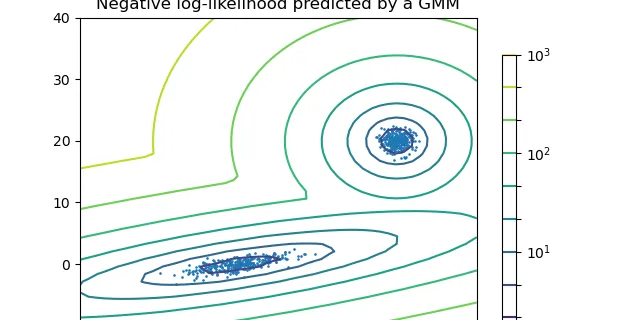
2.1. Gaussian mixture models
sklearn.mixture is a package which enables one to learn Gaussian Mixture Models (diagonal, spherical, tied and full covariance matrices supported), sample them, and estimate them from data. Facilit......
📚 Read more at Scikit-learn User Guide🔎 Find similar documents
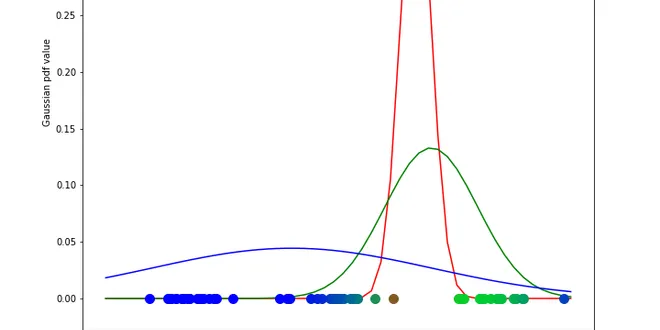
Gaussian Mixture Models(GMM)
Brief: Gaussian mixture models is a popular unsupervised learning algorithm. The GMM approach is similar to K-Means clustering algorithm, but is more robust and therefore useful due to…
📚 Read more at Level Up Coding🔎 Find similar documents

Gaussian Mixture Models(GMM)
Brief: Gaussian mixture models is a popular unsupervised learning algorithm. The GMM approach is similar to K-Means clustering algorithm, but is more robust and therefore useful due to…
📚 Read more at Analytics Vidhya🔎 Find similar documents
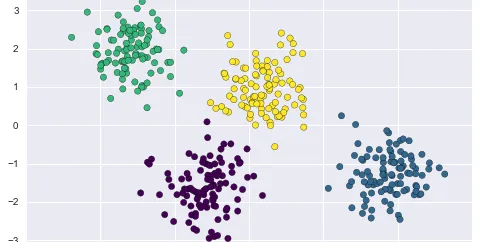
In Depth: Gaussian Mixture Models
The k -means clustering model explored in the previous section is simple and relatively easy to understand, but its simplicity leads to practical challenges in its application. In particular, the non-...
📚 Read more at Python Data Science Handbook🔎 Find similar documents
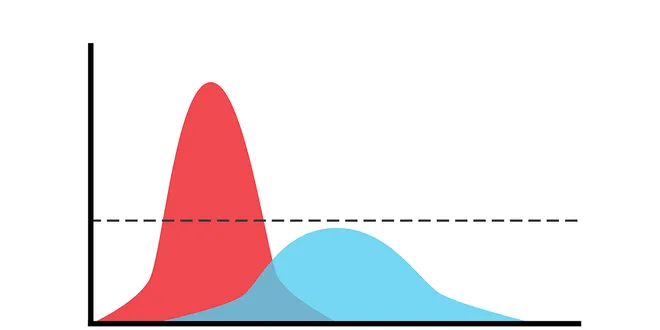
Gaussian Mixture Models (GMMs): from Theory to Implementation
Mixture Models A mixture model is a probability model for representing data that may arise from several different sources or categories, each of which is modeled by a separate probability distribution...
📚 Read more at Towards Data Science🔎 Find similar documents

Gaussian Mixture Models with Python
The Gaussian mixture model (GMM) is well-known as an unsupervised learning algorithm for clustering. Here, “Gaussian” means the Gaussian distribution, described by mean and variance; mixture means…
📚 Read more at Towards Data Science🔎 Find similar documents
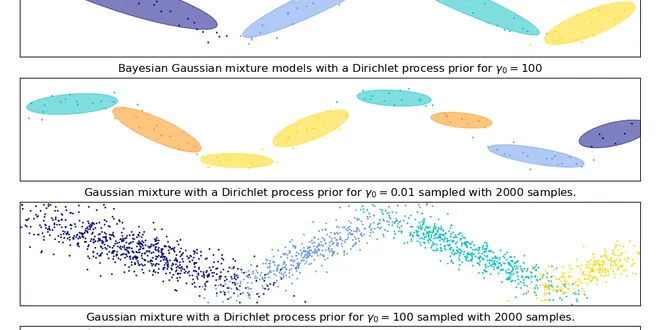
Gaussian Mixture Model Sine Curve
Gaussian Mixture Model Sine Curve This example demonstrates the behavior of Gaussian mixture models fit on data that was not sampled from a mixture of Gaussian random variables. The dataset is formed ...
📚 Read more at Scikit-learn Examples🔎 Find similar documents
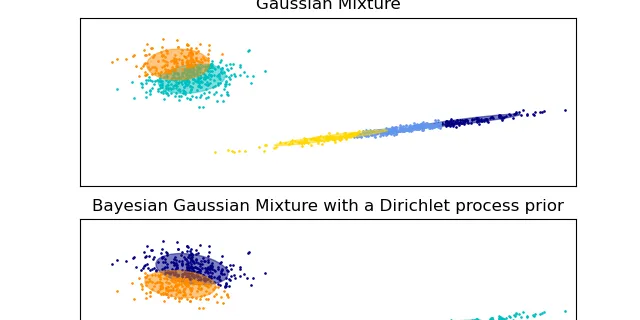
Gaussian Mixture Model Ellipsoids
Gaussian Mixture Model Ellipsoids Plot the confidence ellipsoids of a mixture of two Gaussians obtained with Expectation Maximisation ( GaussianMixture class) and Variational Inference ( BayesianGauss...
📚 Read more at Scikit-learn Examples🔎 Find similar documents
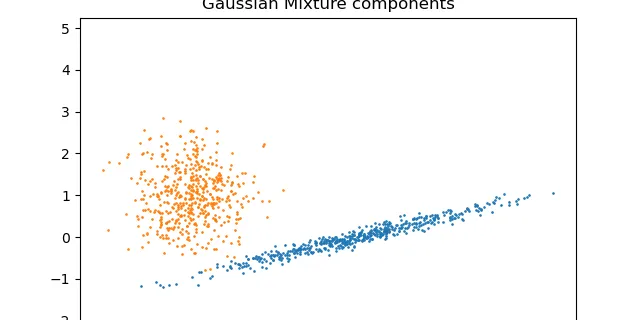
Gaussian Mixture Model Selection
Gaussian Mixture Model Selection This example shows that model selection can be performed with Gaussian Mixture Models using information-theoretic criteria (BIC) . Model selection concerns both the co...
📚 Read more at Scikit-learn Examples🔎 Find similar documents
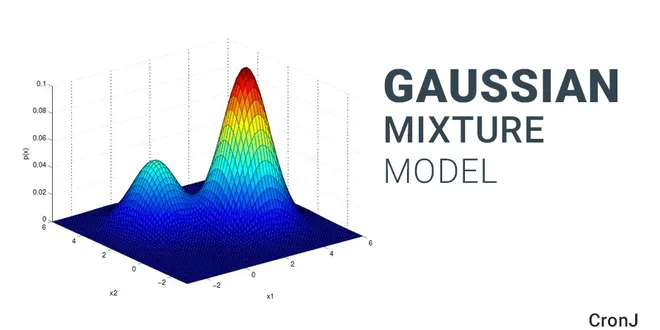
Model-Based Clustering using GMM-Gaussian Mixture Models
A Gaussian Mixture Model (GMM) is a clustering technique that assumes data is generated from a mixture of several Gaussian distributions, each with its own mean and covariance. GMMs are widely used in...
📚 Read more at Level Up Coding🔎 Find similar documents
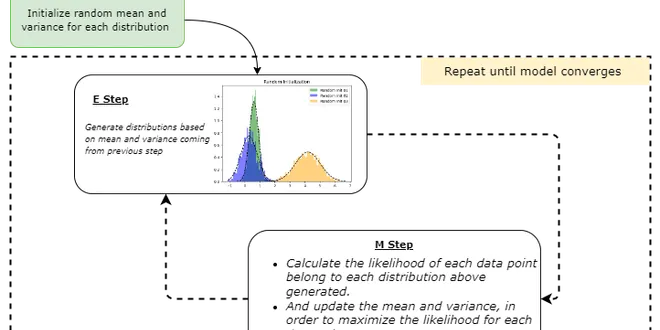
Gaussian Mixture Model Clearly Explained
The only guide you need to learn everything about GMM Photo by Planet Volumes on Unsplash When we talk about Gaussian Mixture Model (later, this will be denoted as GMM in this article), it's essentia...
📚 Read more at Towards Data Science🔎 Find similar documents
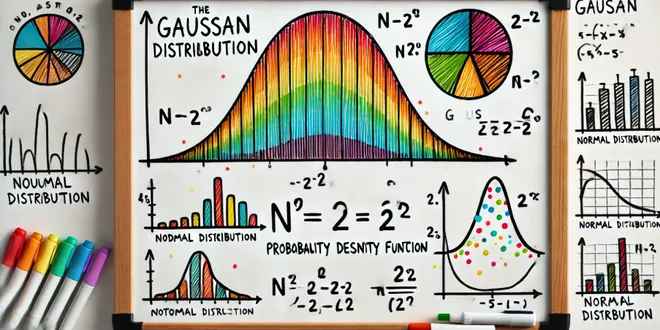
Classics Never Fade Away: Decipher Gaussian Mixture Model and Its Variants!
This blog dives deep into the Gaussian Mixture Model (GMM) and demonstrates why it’s more superior than K-means for clustering tasks. Figure 1: Gaussian mixture model illustration [Image by AI] Intro...
📚 Read more at Towards AI🔎 Find similar documents


